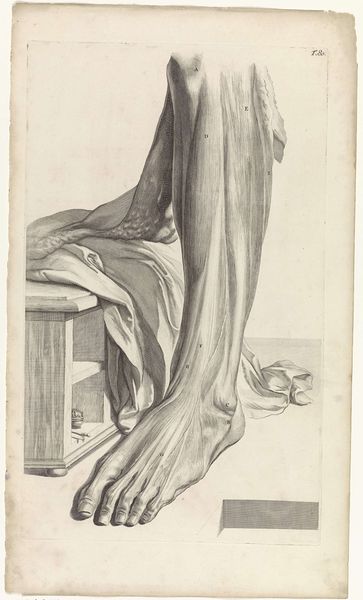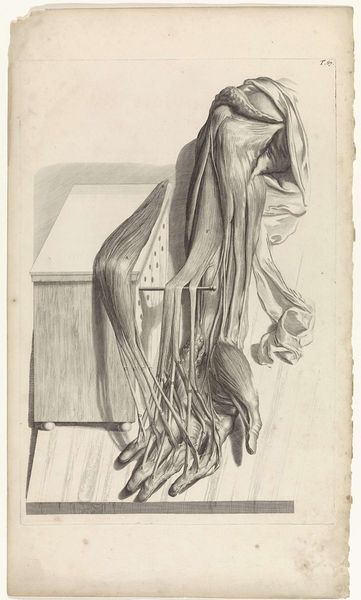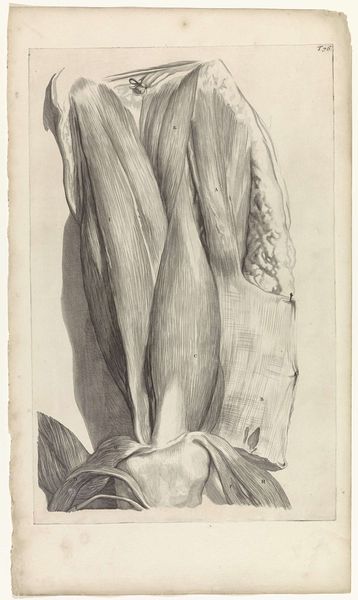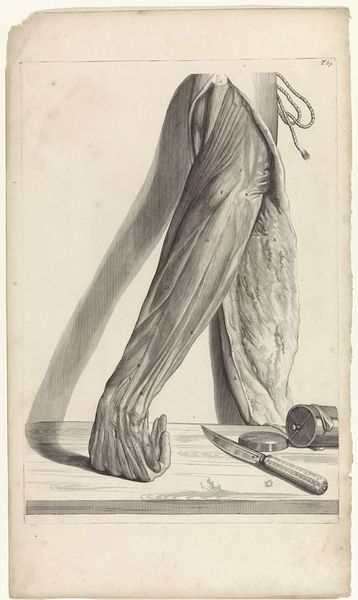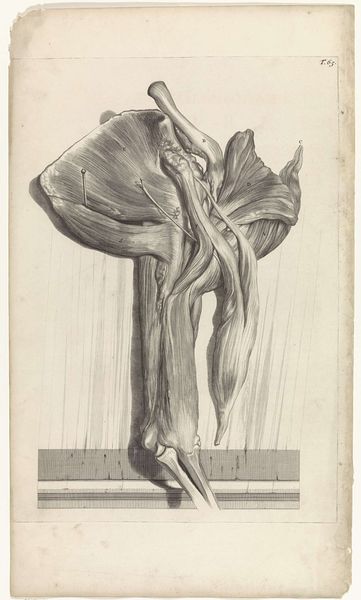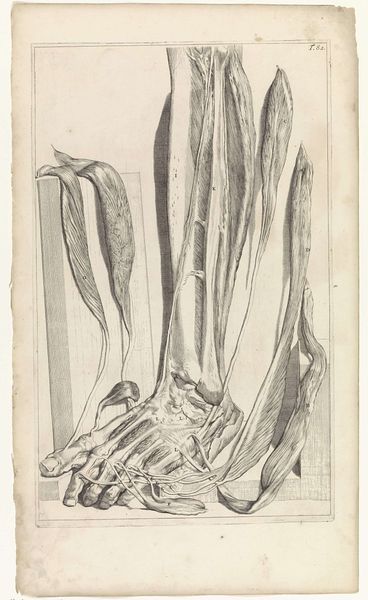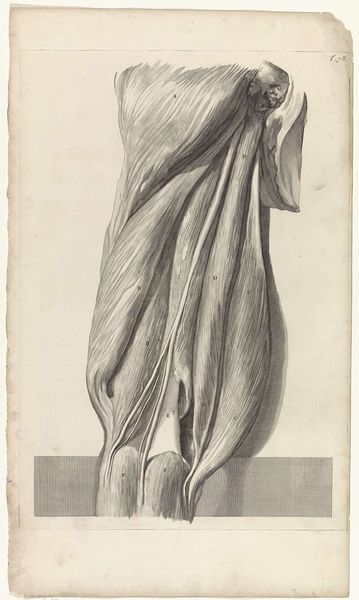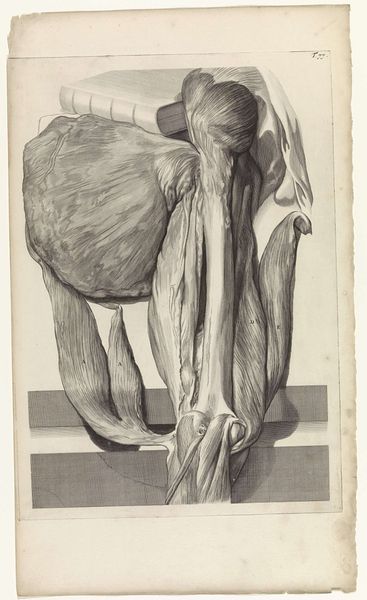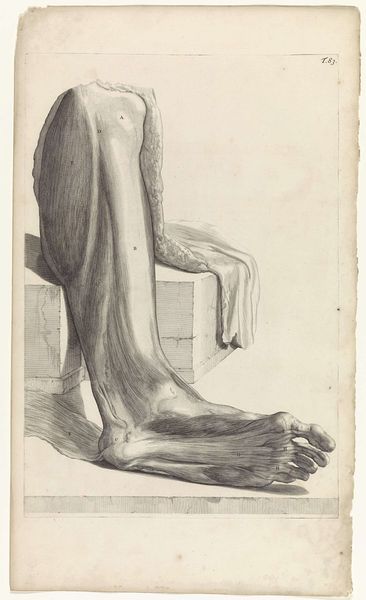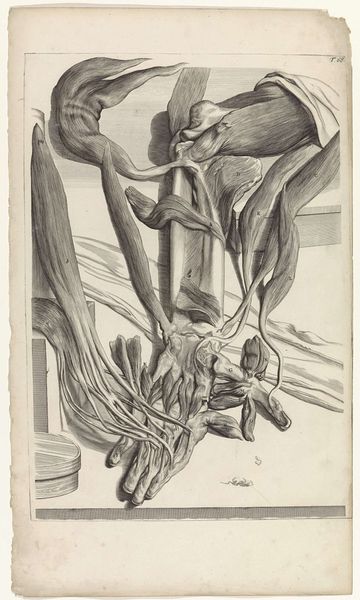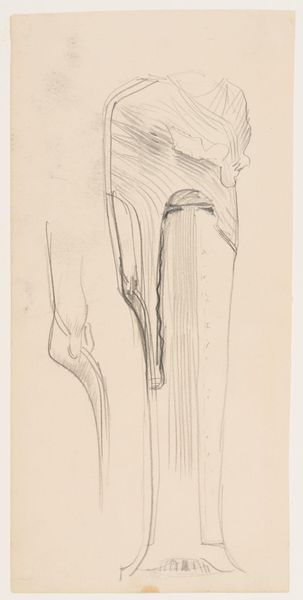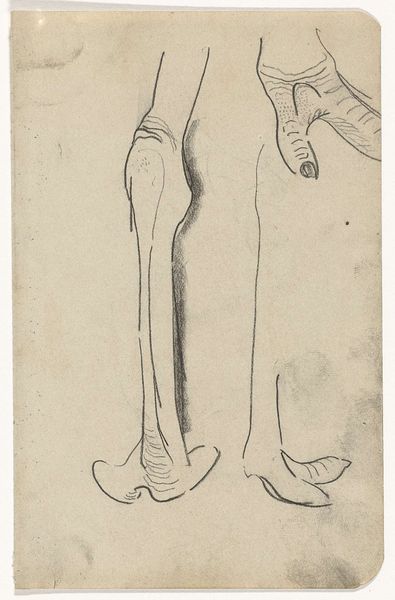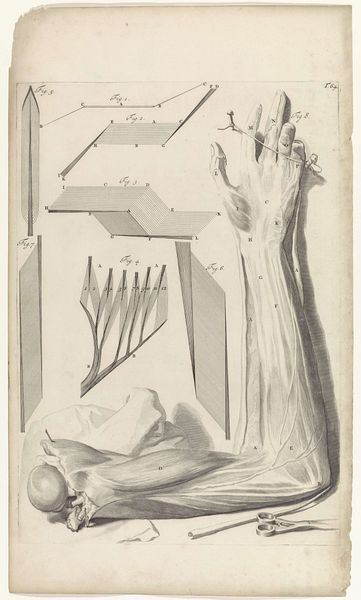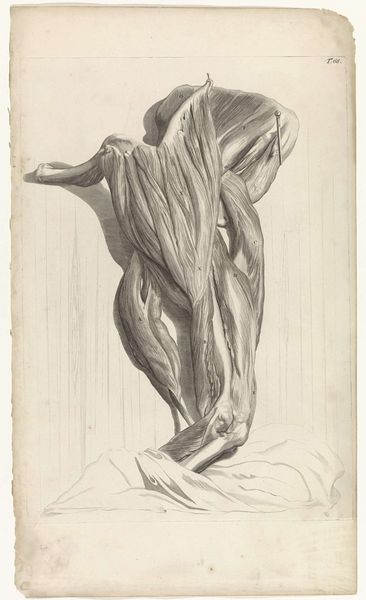
drawing, print, engraving
#
portrait
#
drawing
#
baroque
# print
#
pen sketch
#
pencil sketch
#
ink drawing experimentation
#
pen-ink sketch
#
line
#
sketchbook drawing
#
history-painting
#
academic-art
#
sketchbook art
#
engraving
#
realism
Dimensions: width 304 mm, height 506 mm
Copyright: Rijks Museum: Open Domain
Curator: This print, titled "Anatomische studie van de pezen van de rechtervoet" by Pieter van Gunst, created around 1685, strikes me as a fascinating object. Editor: Yes, the rendering is quite detailed. It's almost unnerving how much detail van Gunst includes here of the foot's tendons. What are we to make of this print? Curator: Well, considering it's an engraving, we have to think about the labor involved in its production. Each line was carefully etched into a metal plate. What kind of social conditions enabled such detailed craftsmanship, and for what purpose? Editor: Presumably for medical study. Curator: Precisely, but medical knowledge wasn't universally accessible back then. Who commissioned and consumed these prints? Were they circulated amongst physicians or affluent patrons dabbling in science? Understanding its circulation can reveal insights into class and access to knowledge at that time. Consider also that this "study" is of a human body-- someone's labor quite literally offered up for visual consumption through the medium of printmaking. Editor: That is an interesting and disturbing question... I was drawn to its detail and artistry, but I now think it is impossible to disconnect it from the processes that enabled and ultimately used its production. Thank you. Curator: Of course. Looking at art this way can open new pathways of understanding the social role of art. It allows us to not simply look at aesthetic details, but also consider production.
Comments
No comments
Be the first to comment and join the conversation on the ultimate creative platform.
